-
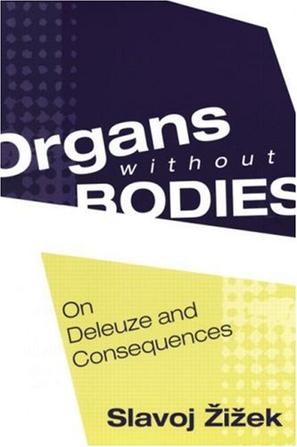
Organs without Bodies
The latest book by the Slovenian critic Slavoj Zizek takes the work of French philosopher Gilles Deleuze as the beginning of a dazzling inquiry into the realms of radical politics, philosophy, film (Hitchcock, Fight Club), and psychoanalysis. Of Organs without Bodies Joan Copjec (Imagine There's No Woman) has written: "With all his ususal humor and invention, Zizek -- the acknowledged master of the 180 degree turn -- here takes a trip into "enemy" territory to deliver Deleuze of a marvelously rebellious child, one that seriously challenges Deleuze's other progeny with a surprising but convincing bid for succession. Those who thought Deleuze's forward march into the future would follow a straight path are forced to rethink their stance. From now on all readings of Deleuze will have to take a detour through this important -- even necessary -- book." Eric Santner (On the Psychopathology of Everyday Life) describes Organs without Bodies as offering "an entirely new degree of conceptual clarity and political urgency. Through his deep engagement with the logic of Deleuze's project, Zizek opens up new possibilities of thought beyond the terms of the current political debates on globalization, democratization, war on terror. Once again, Zizek has produced an utterly timely and radically untimely meditation." Recently profiled in The New Yorker, and hailed by the Village Voice as "the giant of Ljubljana," Zizek is one of the most provocative and entertaining thinkers at work today. -
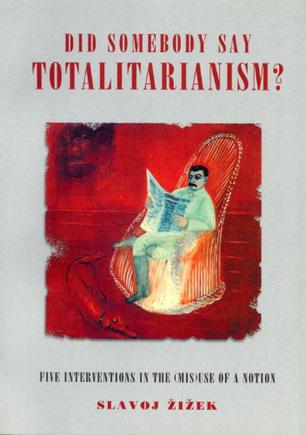
Did Somebody Say Totalitarianism?
-
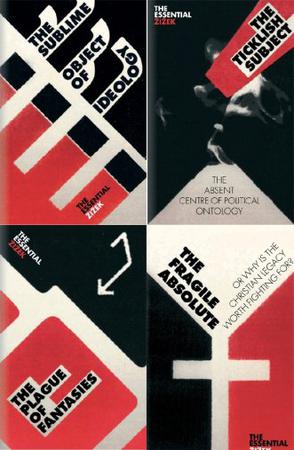
The Essential Zizek
Slavoj Zizek's work traverses the fields of philosophy, psychoanalysis, theology, history and political theory, taking in film, popular culture, literature and jokes - all to provide acute analyses of the complexities of contemporary ideology, as well as a serious and sophisticated philosophy. His recent films "The Pervert's Guide to the Cinema" and "Zizek!" reveal a theorist at the peak of his powers and a skilled communicator. Now Verso are making these four classic titles, that stand as the core of his ever-expanding life's work, available as new editions. Each are beautifully re-packaged, including new introductions from Zizek himself. Simply, they are the essential texts of Zizek's thought and thus Western thought. -
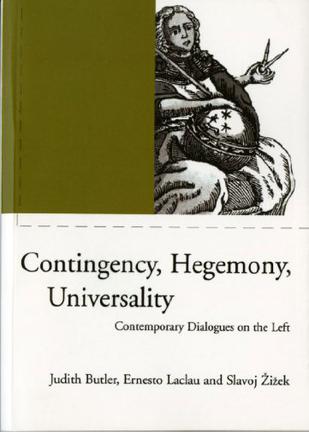
Contingency, Hegemony, Universality
What is the contemporary legacy of Gramsci's notion of Hegemony? How can universality be reformulated now that its spurious versions have been so thoroughly criticized? In this ground-breaking project, Judith Butler, Ernesto Laclau and Slavoj Zizek engage in a dialogue on central questions of contemporary philosophy and politics. Their essays, organized as separate contributions that respond to one another, range over the Hegelian legacy in contemporary critical theory, the theoretical dilemmas of multiculturalism, the universalism- versus-particularism debate, the strategies of the Left in a globalized economy, and the relative merits of post-structumalism and Lacanian psychoanalysis for a critical social theory. While the rigour and intelligence with which these writers approach their work is formidable, Contingency, Hegemony, Universality benefits additionally from their clear sense of energy and enjoyment in a revealing and often unpredictable exchange. -
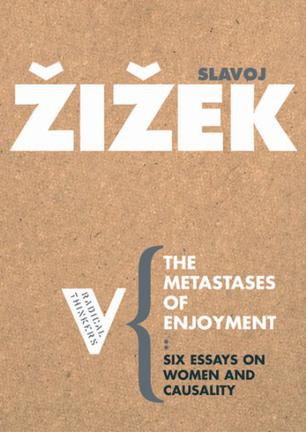
The Metastases of Enjoyment
A disturbing and radical examination of the status of women and the role of violence in contemporary culture and politics. -
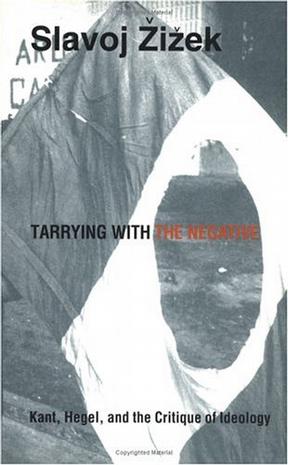
Tarrying with the Negative
In the space of barely more than five years, with the publication of four pathbreaking books, Slavoj Zizek has earned the reputation of being one of the most arresting, insightful, and scandalous thinkers in recent memory. Perhaps more than any other single author, his writings have constituted the most compelling evidence available for recognizing Jacques Lacan as the preemient philosopher of our time. In "Tarrying with the Negative," Zizek challenges the contemporary critique of ideology, and in doing so opens the way for a new understanding of social conflict, particularly the recent outbursts of nationalism and ethnic struggle. Are we, Zizek asks, confined to a postmodern universe in which truth is reduced to the contingent effect of various discursive practices and where our subjectivity is dispersed through a multitude of ideological positions? "No" is his answer, and the way out is a return to philosophy. This revisit to German Idealism allows Zizek to recast the critique of ideology as a tool for disclosing the dynamic of our society, a crucial aspect of which is the debate over nationalism, particularly as it has developed in the Balkans--Zizek's home. He brings the debate over nationalism into the sphere of contemporary cultural politics, breaking the impasse centered on nationalisms simultaneously fascistic and anticolonial aspirations. Provocatively, Zizek argues that what drives nationalistic and ethnic antagonism is a collectively driven refusal of our own enjoyment. Using examples from popular culture and high theory to illuminate each other--opera, film noir, capitalist universalism, religious and ethnic fundamentalism--this work testifies to the fact that, far more radically than the postmodern sophists, Kant and Hegel are our contemporaries.